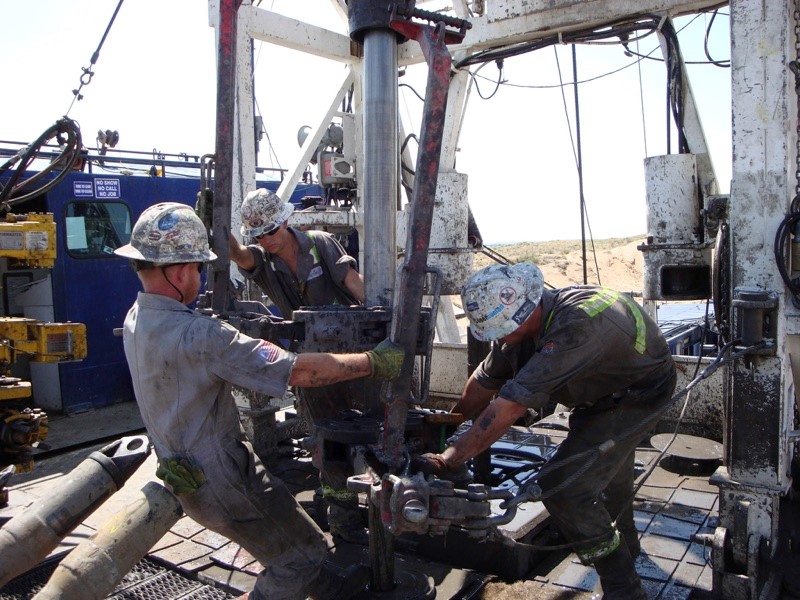COURSE OVERVIEW
DE0900 : Completion Design Practices and Perforation

OVERVIEW
| COURSE TITLE | : | DE0900 : Completion Design Practices and Perforation |
| COURSE DATE | : | Apr 13 - Apr 17 2025 |
| DURATION | : | 5 Days |
| INSTRUCTOR | : | Mr. Fred Lazor |
| VENUE | : | Doha, Qatar |
| COURSE FEE | : | $ 8500 |
| Request For Course Outline | ||
Course Description
This practical and highly-interactive course includes real-life case studies where participants will be engaged in a series of interactive small groups and class workshops.
This course is designed to provide participants with a detailed and up-to-date overview of completion design practices and perforation. It covers the basic well completion design, practices and strategies; developing a high level completion strategy for wells in a variety of situations; the packer selection and tubing forces; the selection of tubing, packers and completion flow control equipment; the wellheads/chokes/subsurface safety valves and flow control equipment; and the appraisal/designing a suitable flow barrier strategy and suitable intervention strategy.
Further, this course will also discuss the recommendations on installation and retrieval practices for tubing, packers, etc. in different well types; the corrosion and erosion inflow and tubing performance; the tubing design, packer setting, retrieval and material selection; the key design features for horizontal, multilateral, HPHT wells, etc; the deviated/multiple zone/ subsea/horizontal/multilateral and HPHT completion considerations; the selection of an appropriate intervention strategy/equipment; and the key features/applicability of the main sand control, fracpack and well stimulation options.
During this interactive course, participants will learn the fluids chemicals and acidizing techniques, sandstone acidizing and carbonates acidizing; the well candidates for stimulation; the perforation process, factors affecting charge performance and perforating techniques; the types of guns, perforating damage pressure, control equipment and safe rig up; how to assess/specify concerns/remedial measures for formation damage/skin; the wireline/coiled tubing/snubbing operations; developing and outline overall strategy for a completion program; and the HSE related issues.
link to course overview PDF
This course is designed to provide participants with a detailed and up-to-date overview of completion design practices and perforation. It covers the basic well completion design, practices and strategies; developing a high level completion strategy for wells in a variety of situations; the packer selection and tubing forces; the selection of tubing, packers and completion flow control equipment; the wellheads/chokes/subsurface safety valves and flow control equipment; and the appraisal/designing a suitable flow barrier strategy and suitable intervention strategy.
Further, this course will also discuss the recommendations on installation and retrieval practices for tubing, packers, etc. in different well types; the corrosion and erosion inflow and tubing performance; the tubing design, packer setting, retrieval and material selection; the key design features for horizontal, multilateral, HPHT wells, etc; the deviated/multiple zone/ subsea/horizontal/multilateral and HPHT completion considerations; the selection of an appropriate intervention strategy/equipment; and the key features/applicability of the main sand control, fracpack and well stimulation options.
During this interactive course, participants will learn the fluids chemicals and acidizing techniques, sandstone acidizing and carbonates acidizing; the well candidates for stimulation; the perforation process, factors affecting charge performance and perforating techniques; the types of guns, perforating damage pressure, control equipment and safe rig up; how to assess/specify concerns/remedial measures for formation damage/skin; the wireline/coiled tubing/snubbing operations; developing and outline overall strategy for a completion program; and the HSE related issues.
TRAINING METHODOLOGY
This interactive training course includes the following training methodologies:
LecturesPractical Workshops & Work Presentations
Hands-on Practical Exercises & Case Studies
Simulators (Hardware & Software) & Videos
In an unlikely event, the course instructor may modify the above training methodology for technical reasons.
VIRTUAL TRAINING (IF APPLICABLE)
If this course is delivered online as a Virtual Training, the following limitations will be applicable:
| Certificates | : | Only soft copy certificates will be issued |
| Training Materials | : | Only soft copy materials will be issued |
| Training Methodology | : | 80% theory, 20% practical |
| Training Program | : | 4 hours per day, from 09:30 to 13:30 |
RELATED COURSES

DE0624 : Understand Water Flooding, Reservoir Souring and Water Breakthrough
- Date: Jan 11 - Jan 15 / 3 Days
- Location: Doha, Qatar
- Course Details Register

DE0805 : Coring and Core Analysis
- Date: Jan 11 - Jan 15 / 3 Days
- Location: Doha, Qatar
- Course Details Register

DE0815 : Water Injection Technology: Water Flooding A-Z
- Date: Jan 11 - Jan 15 / 3 Days
- Location: Doha, Qatar
- Course Details Register

DE0972 : Well Integrity Management
- Date: Jan 11 - Jan 15 / 3 Days
- Location: Doha, Qatar
- Course Details Register
